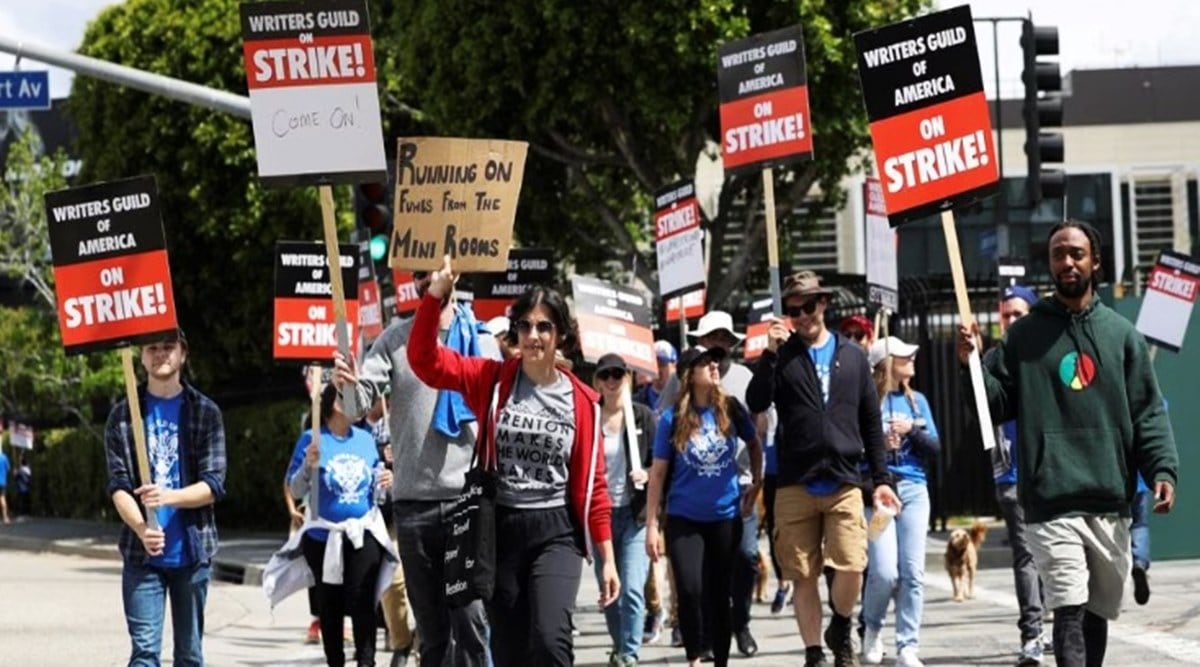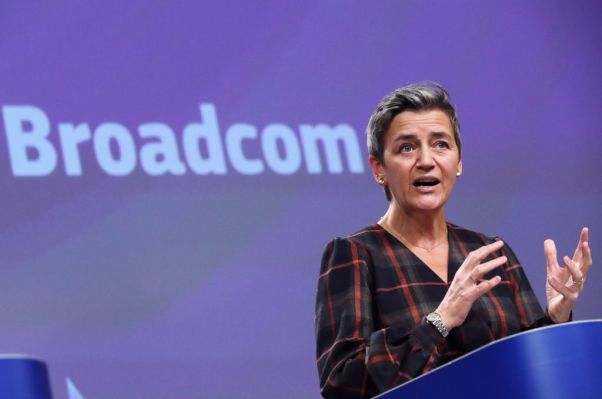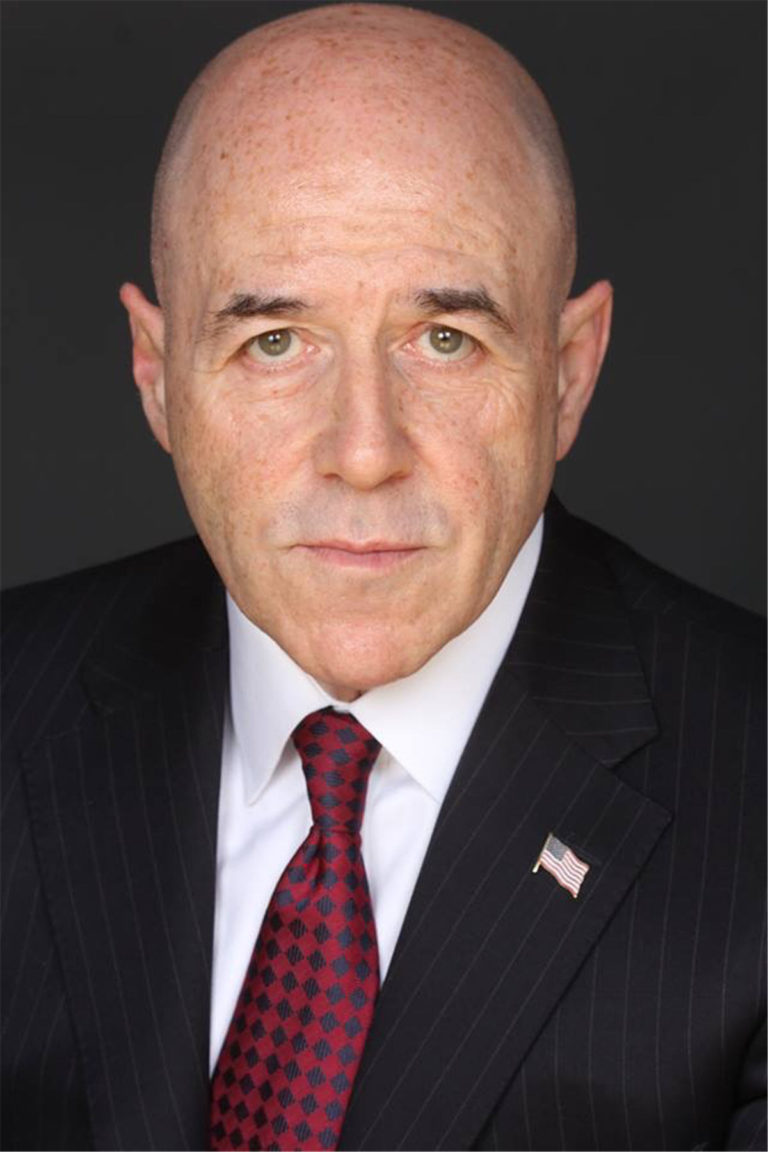The Writers' And Actors' Strike: A Complete Guide To The Hollywood Shutdown

Table of Contents
The Core Issues Fueling the Writers' and Actors' Strike
The Writers' and Actors' Strike isn't simply about money; it's about fair compensation, job security, and working conditions in a rapidly changing entertainment landscape. Several key issues fuel this historic labor dispute.
Fair Compensation and Residuals
The traditional model of residuals – payments to writers and actors based on the continued success of their work – is crumbling in the streaming era. Streaming services offer subscription-based models, often paying upfront fees with minimal or no residuals, drastically impacting income for many creatives. The WGA and SAG-AFTRA are demanding fairer compensation structures that reflect the actual revenue generated by their work on streaming platforms.
- Decreased Residuals: Actors and writers who worked on shows that became massive streaming hits are often receiving significantly less than they would have under the traditional television model.
- Impact of Streaming: The shift to streaming has led to a decrease in the number of seasons for many shows, further reducing overall compensation for writers and actors.
- Transparency Demands: The unions are pushing for greater transparency from studios regarding streaming revenue and how it's allocated.
The Rise of AI in the Entertainment Industry
The use of artificial intelligence (AI) in writing and acting is a major point of contention in the Writers' and Actors' Strike. The unions express serious concerns about the potential displacement of human workers through AI-generated scripts, characters, and even performances. This threatens not only job security but also the creative control and artistic integrity of the work.
- AI-Generated Scripts: Concerns exist that studios could use AI to generate scripts at a fraction of the cost, reducing the need for human writers.
- Copyright Infringement: The use of AI raises ethical questions about copyright infringement and the ownership of creative works.
- Devaluation of Human Talent: The widespread use of AI could significantly devalue the skills and experience of professional writers and actors.
Working Conditions and Health Insurance
The entertainment industry, especially for freelance writers and actors, often entails long hours, grueling schedules, and unpredictable work. Affordable and comprehensive health insurance is crucial, yet many struggle to access it. The Writers' and Actors' Strike highlights the need for improved working conditions and accessible healthcare.
- Unreasonable Working Hours: Writers and actors often work excessive hours to meet tight deadlines and demanding production schedules.
- Gig Economy Instability: The freelance nature of much of the work in the entertainment industry leaves many creatives without the benefits and security of traditional employment.
- High Cost of Healthcare: The cost of healthcare for freelance actors and writers is often prohibitively expensive, leading to many going without adequate coverage.
The Impact of the Writers' and Actors' Strike on Hollywood
The Writers' and Actors' Strike has had a profound and multifaceted impact on the entertainment industry and beyond.
Production Delays and Cancellations
The strike has brought countless film and television productions to a complete halt. This results in significant financial losses for studios and production companies, impacting planned release schedules and potentially impacting investor confidence.
- Major Productions Affected: Numerous high-profile films and television shows have experienced significant delays or complete cancellations.
- Financial Losses: The economic impact of the strike is already immense, with projections of billions of dollars lost in revenue.
- Post-Production Delays: Even projects already filmed are facing delays due to the actors' inability to participate in promotional activities or dubbing.
Ripple Effects Across Related Industries
The impact of the Writers' and Actors' Strike extends far beyond Hollywood studios and production companies. Related industries, including catering, transportation, and post-production, are experiencing significant job losses and economic hardship.
- Catering Companies: Catering businesses that rely heavily on film and television productions face reduced income and potential layoffs.
- Transportation Services: Companies providing transportation for film crews and actors are experiencing a sharp decline in business.
- Post-Production Facilities: Post-production houses rely heavily on completed projects, and the strike significantly impacts their workflow and revenue.
The Impact on Consumers
Consumers are also feeling the effects of the Writers' and Actors' Strike. The delayed release of highly anticipated movies and TV shows impacts viewing habits and alters the overall entertainment landscape.
- Release Delays: Many anticipated releases have been postponed indefinitely, impacting both theatrical releases and streaming services.
- Limited Content: Streaming services are already facing content shortages, and the strike exacerbates this issue.
- Shifting Viewing Habits: Consumers may turn to alternative forms of entertainment during the prolonged absence of new content.
Potential Resolutions and the Future of the Writers' and Actors' Strike
Reaching a resolution to the Writers' and Actors' Strike requires compromise from both the studios and the unions. Potential outcomes include updated compensation models, clearer guidelines regarding AI usage, and improved working conditions. The length of the strike will significantly impact the long-term health of the entertainment industry and its labor relations.
- Negotiation Points: Key negotiation points include residuals, AI usage regulations, and minimum staffing requirements on productions.
- Predictions for the Future: The outcome of this strike will likely set a precedent for future labor negotiations in the entertainment industry, shaping the relationship between studios and creatives for years to come.
- Potential for Long-Term Impacts: The strike could lead to fundamental changes in how the entertainment industry operates, impacting everything from production models to content creation.
Conclusion
The Writers' and Actors' Strike represents a pivotal moment in Hollywood history, highlighting crucial issues of fair compensation, the ethical implications of AI, and the overall working conditions within the entertainment industry. Understanding the complexities of this labor dispute is essential for anyone invested in the future of film and television. Stay informed about the ongoing developments in the Writers' and Actors' Strike and its implications for the creative landscape. Follow reputable news sources for updates on negotiations and potential resolutions to this significant industry-wide event. The future of Hollywood hinges on a fair and equitable resolution to this critical labor dispute.

Featured Posts
-
 Responsible Ai Addressing The Reality Of Ais Learning Capabilities
May 31, 2025
Responsible Ai Addressing The Reality Of Ais Learning Capabilities
May 31, 2025 -
 The Price Of Fame Constance Wilde And Oscars Legacy
May 31, 2025
The Price Of Fame Constance Wilde And Oscars Legacy
May 31, 2025 -
 Find Your New Home Two Week Free Accommodation Offer In A German City
May 31, 2025
Find Your New Home Two Week Free Accommodation Offer In A German City
May 31, 2025 -
 1 050 Price Hike At And Ts Concerns Over Broadcoms V Mware Deal
May 31, 2025
1 050 Price Hike At And Ts Concerns Over Broadcoms V Mware Deal
May 31, 2025 -
 Bernard Kerik From 9 11 Hero To Convicted Felon
May 31, 2025
Bernard Kerik From 9 11 Hero To Convicted Felon
May 31, 2025
